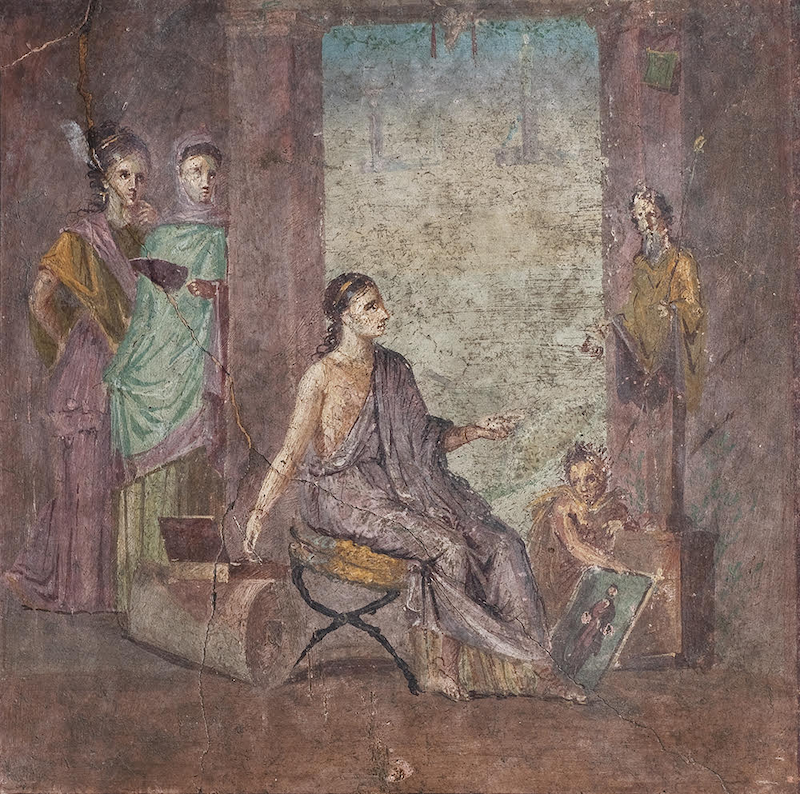

If you can’t make it to Pompeii to gaze upon the incredible ancient Roman frescoes uncovered there, a visit to New York University‘s Institute for the Study of the Ancient World is the next best thing. Currently on view, “Pompeii in Color: The Life of a Roman Painting” gathers 35 frescoes from the Museo Archeologico Nazionale di Napoli for a temporary exhibition that sheds light on what ancient Roman homes looked like.
When Mount Vesuvius erupted on August 24, 79 C.E., Pompeii was a sophisticated city with between 10,000 and 20,000 inhabitants. Buried by ash and pumice stone from the volcanic eruption, it became a city frozen in time, lost until the 1700s, when excavations began, essentially creating the discipline of archeology. Of course, neither the technology nor the standards were what they are today. Some early digging was done haphazardly by looters or other untrained workers, and many frescoes were simply torn off the walls and framed as if they were paintings.

The frescoes on view in this exhibition mostly came from private homes, known as domus. Some depict mythological figures like Odysseus and Hercules, while others show domestic scenes or still lifes. In the home of Marcus Lucretius, for example, a fresco in the dining room depicted a drunken Hercules, meant to convey Lucretius’s status as a gracious host while warning his guests of the dangers of drinking too much wine.
Indeed, many frescoes were meant to communicate subtle messages about the wealthy patrons who commissioned them, especially since Roman homes were typically hybrid spaces where inhabitants and their household staff not only slept but also conducted business and received guests. Homes usually had an atrium, dining room, kitchen, office, and a series of multipurpose rooms called a cubiculum that could be used for sleeping and other activities.
The online version of the exhibition gives you a virtual tour of the House of the Tragic Poet, showing how it would have been painted vibrant reds and yellows, with decorative mosaics on the floors and frescoes on the walls. Virtual recreations like these can certainly help you imagine what these ancient homes would have looked like, but seeing the ancient frescoes in person is an incredible experience, especially when you realize that they have survived for more than 2,000 years.

On April 7th and 9th, Untapped New York Insiders are invited to join a guided tour of “Pompeii in Color: The Life of a Roman Painting.” Participants will see 35 frescoes from the National Archaeological Museum of Naples and discover these important works as paintings representing dynamic mythological scenes, inviting landscapes, sumptuous still lifes, astonishing trompe-l’oeil, captivating portraits, and energetic genre scenes.
This exhibition presents an exciting opportunity to learn about ancient paintings, the tastes and values of the Romans who lived with these works, and the techniques used by the artists who created them. Seldom exhibited outside Italy, these remarkably well-preserved frescoes invite us to see beyond the ashes of the tragic city and instead experience the vibrant world of the ancient Roman home as the Pompeians themselves knew it.
The tour will be led by a Ph.D. student from NYU with expertise in ancient art or archaeology. This event is free for Untapped New York Insiders. If you’re not a member, join now (and get your first month free with the code JOINUS).
Next, read about 10 new public art installations on view in NYC this month!

